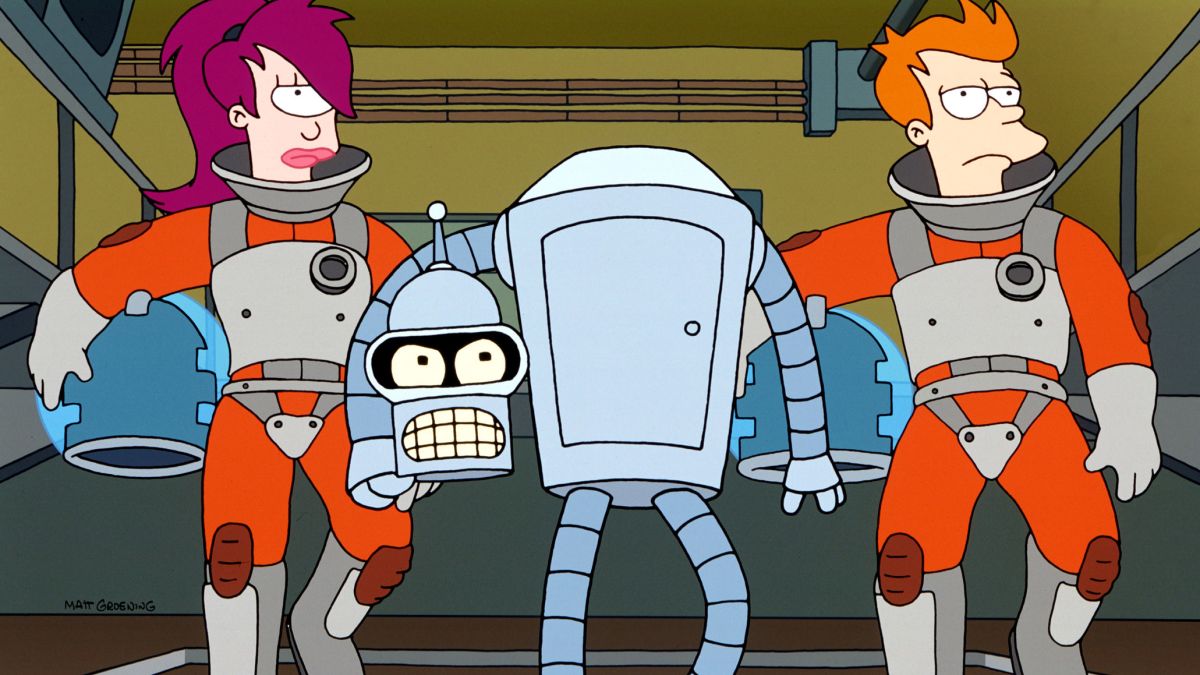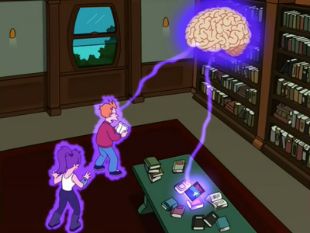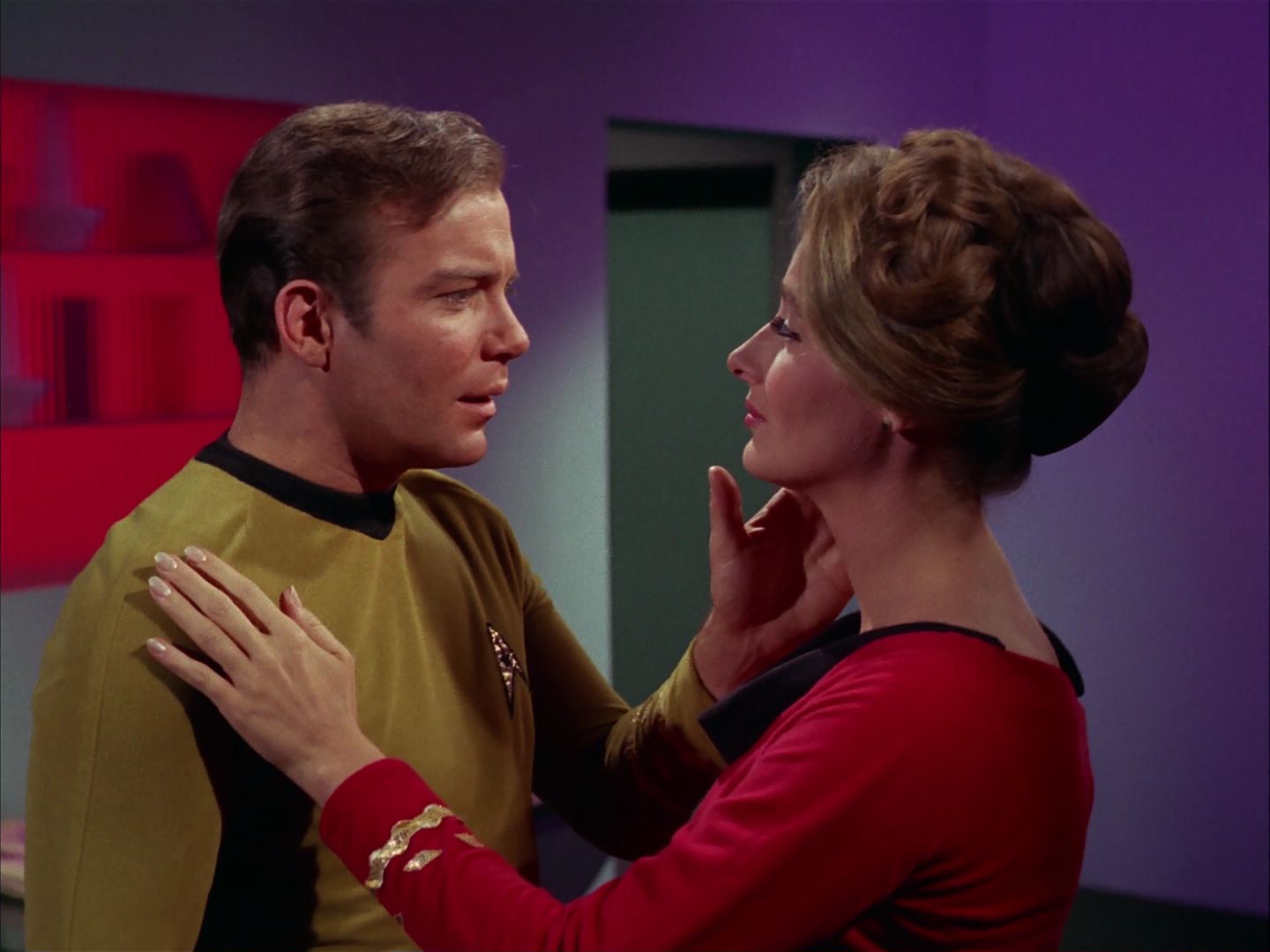
The brain is an interesting concept to describe in television. At first, it seemed hard to understand. But after watching all the episode and giving myself time to think about it, I thought all three shows showed great levels of respect and intrigue towards the concept of mind vs. body.

When I watched the episodes, I started with the Futurama episode “The Day the Earth Stood Stupid”, whose title is a parody of the 1951 film “The Day the Earth Stood Still’ which I’ve heard of but never seen. To sum up, an army of brains attack Earth, turning everyone on the planet stupid, except for Fry. I thought this was because he was already a pretty stupid character, but after doing a bit of research, I learned that he lacks a Delta brainwave, which is referenced in the Season 3 episode “Roswell That Ends Well”. So, it’s up to Fry, who is the dumbest character in the planet to defeat the smartest creature in the galaxy. Two scenes I want to focus on happen in the same location, the library at the end.

The first one is when Fry defeats the big brain by writing a grammatically incorrect book. This is an example of the embodied section of 4e cognition. Not only did fry have to think with brain, he also had to use his body to write the book to defeat the brain creature. The second one is when Leela gains her intelligence back. Before she does, she believes that Fry broke his neck from a fallen bookshelf, so her body was acting emotional. After she gains her intelligence back, she starts to fix her sentence structure, showing the audience that no body can work without a mind and vice versa. Unlike other shows, Futurama is seen as one of the most smartly written shows on television, considering that the shows writing team have 3 PHD’s, 7 Masters degrees, and a collective 50 years in Harvard university.

After Futurama, I watch the Altered Carbon episode “Out of the Past”. It was hard for me to get into it at first. But after getting to the 10 min mark, I became intrigued. Honestly, I might start watching the show for fun. The one scene I want to elaborate on is the exposition scene at Alcatraz Prison.

Takeshi Kovacs, played by Joel Kinnaman, is told by a hologram about the functions of cortical stacks. Basically, a persons mind and personality are stored in chips that are the size of poker chips, and the bodies are seen as sleeves, disposable bodies that the person can control. Kind of like a CD and a CD player, the machine might break down, but as long as the CD is intact, it will work in another machine. This is shown later when a prisoner with a cortical stack of a seven year old girl is placed in the body of an elderly woman. I absolutely loved this concept, because the contrast of mind vs. body was a very unique way to describe the concept of cybernetics, or the mind as a computer, where ones memories are “stored” in the mind, and are remain alive as long as the chip is undamaged. So, this is technically seen as gaining immortality, despite going thru multiple bodies. This also contradicts Futurama and their understanding of mind vs. body. Unlike Futurama, the cortical stacks, or brain, retain not only a persons intelligence, but also their feelings and personality.

Finally, the last show I watched was the Star Trek: The Original Series episode “Return to Tomorrow”. Now as someone who has barely seen any Star Trek content, aside from two of the James Gunn movies, and is a Star Wars fan, I didn’t know what to expect from this show. But, after seeing the episode, I can see where the respect for this series comes from. Unlike Star Wars, where it’s mainly rooted in fantasy, Star Trek has more of a grounded to reality approach to space travel and exploration, such as Kirk’s captain’s logs taking weeks to be sent to HQ.

Anyway, this episode was fun to watch, and the scene I wanna focus on is the beginning. In it, Captain Kirk, Spock, Dr. Bones, and Ann Mulhall are beamed down to a planet, and meet an ancient being called Sargon. The character of Sargon is the biggest example of the concept of a brain in a vat. When Sargon is in the ball, or vat in this case, he shows signs of high intelligence and some signs of emotion when he talks about his wife Thalassa. When Sargon takes over Captain Kirk’s body, he reminisces on how he misses having a body.
In my opinion, these show have done a fantastic job portraying the concept of cognition and how the mind differs from the body. If I had to pick a favorite interpretation, I would have to go with Altered Carbon, and how the characters are technically immortal as long as the cortical stack is unharmed. I can say now that this is gonna be a fun class.






















